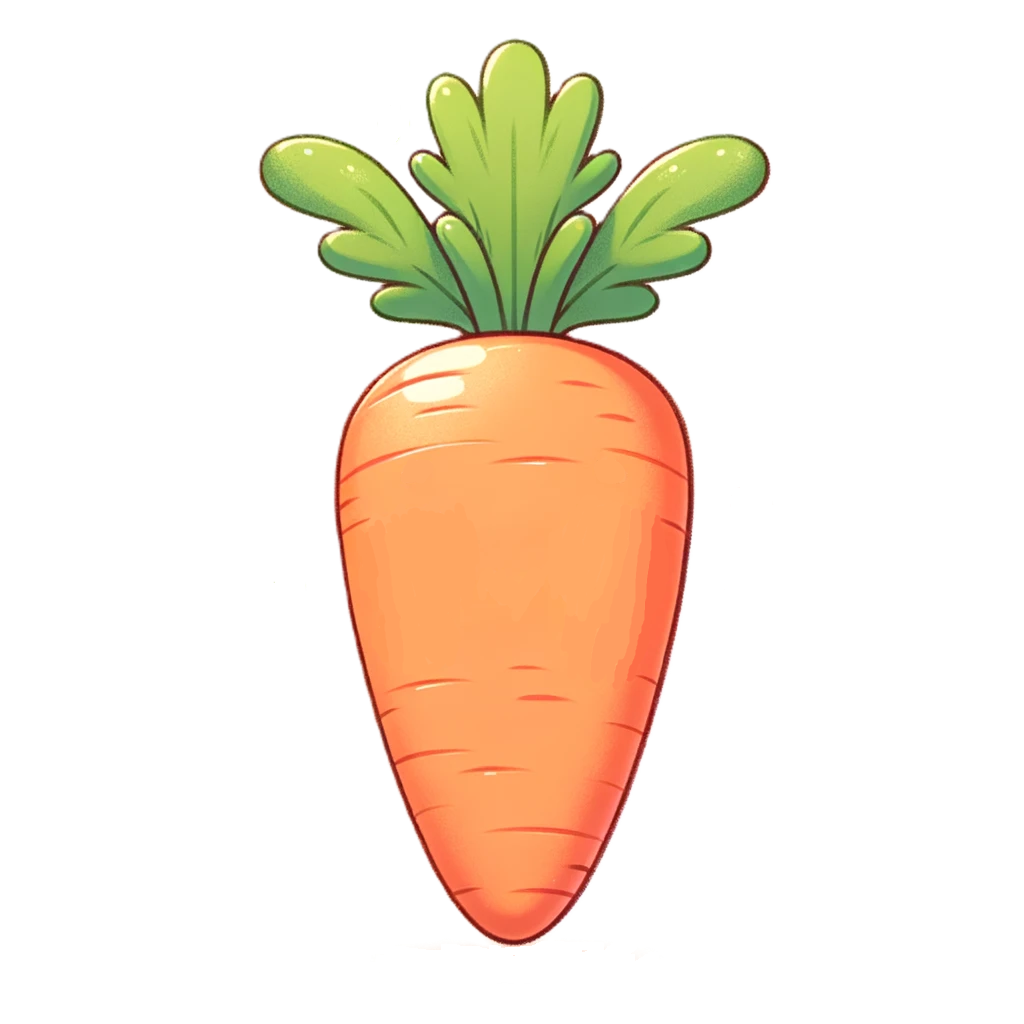
Dutch: The Tuxedoed Breed
Facts at a Glance!
Weight: 3.5 to 5.5 pounds
Recognized Colors:
- Black
- Blue
- Chocolate
- Lilac
- Chinchilla
- Tortoise
- Fawn
- Gray
- Steel
Introduction
Dutch rabbits, with their distinctive markings and charming personalities, have long been cherished as pets and show animals. Originating from the Netherlands, these small to medium-sized rabbits have captured the hearts of enthusiasts worldwide.
In this breed spotlight, we’ll delve into the world of Dutch rabbits, exploring their history, characteristics, care requirements, and the joy they bring to those who welcome them into their homes.
History and Origin
The history of Dutch rabbits dates back to the 19th century in the Netherlands, where they were initially bred for meat and fur. Dutch rabbits gained popularity not only in their country of origin but also abroad, thanks to their striking appearance and amiable temperament. Breeders in England then began selectively breeding for a rabbit that looks similar to what we have today!
Personality
Dutch rabbits are renowned for their friendly and affectionate nature, making them wonderful companions for individuals and families alike. They are known for their gentle demeanor and sociable disposition, often enjoying interaction with their human caregivers. Dutch rabbits thrive on companionship and are happiest when provided with ample opportunities for play, exploration, and bonding.
These rabbits are also known for their intelligence and adaptability, making them relatively easy to train. With patience and positive reinforcement, Dutch rabbits can learn a variety of tricks and behaviors, adding an extra layer of enjoyment to their companionship!
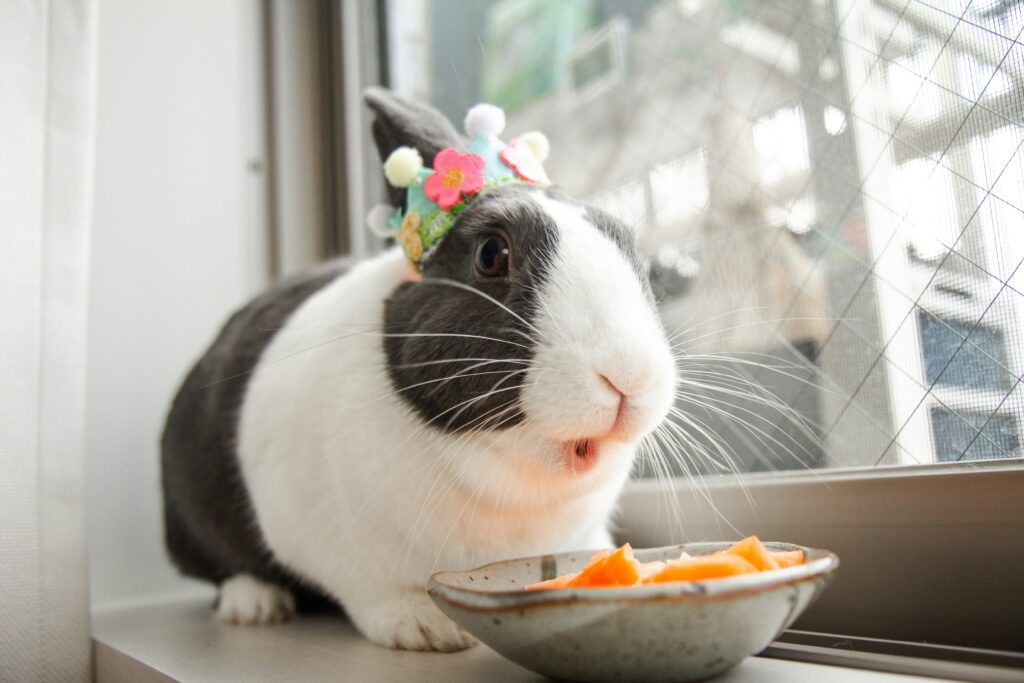
Physical Characteristics
Dutch rabbits are renowned for their striking coloration and distinctive markings, which set them apart from other rabbit breeds. They typically have a white blaze running from the nose, between the eyes, and up to the forehead, contrasting sharply with colored markings on their ears, back, sides, and hindquarters. The most common color combinations include black, blue, chocolate, gray, and tortoiseshell.
In terms of size, Dutch rabbits are classified as small to medium-sized rabbits, with adults typically weighing between 3.5 to 5.5 pounds (1.6 to 2.5 kilograms). They have compact, well-proportioned bodies, with short, rounded ears and bright, expressive eyes that exude intelligence and curiosity.
Care and Maintenance
Caring for a Dutch rabbit involves providing an environment that meets both their physical and mental needs. Here are some essential care requirements to keep in mind:
Housing: Dutch rabbits can be housed indoors or outdoors, depending on climate and preference. Indoors, they should have a spacious cage or enclosure that allows them to move around comfortably. Ensure that your enclosure has a solid floor component such as a carpet square for your rabbit to rest on, lowering the risk of sore hocks. Outdoor enclosures should be secure and protected from predators, with adequate shelter from the elements.
Diet: A balanced diet is crucial for the health and well-being of Dutch rabbits. Their diet should consist primarily of high-quality hay, such as Timothy hay, supplemented high quality rabbit pellets and fresh vegetables in small amounts. Fresh water should be available at all times, provided in a clean water bottle or dish.
Grooming: Dutch rabbits do not require much grooming compared to other breeds such as Angoras, but regular grooming can help to foster bonding with your rabbit! Brushing them gently with a soft-bristled brush a few times a week can help remove loose fur. Additionally, you should be sure to trim their toenails regularly, every 1 to 2 months. Check out our nail trimming guide here if you are new to trimming toenails!
Exercise: Like all rabbits, Dutch are active animals that require regular exercise to stay healthy and happy. Providing opportunities for daily exercise outside of their enclosure is essential. This can include supervised playtime in a rabbit-proofed area of the home or a secure outdoor space.
Veterinary Care: Regular veterinary check-ups are great for monitoring the health of Dutch rabbits and addressing any potential medical issues promptly. They will also be able to provide any nessesary vaccinations or spay/neuters.
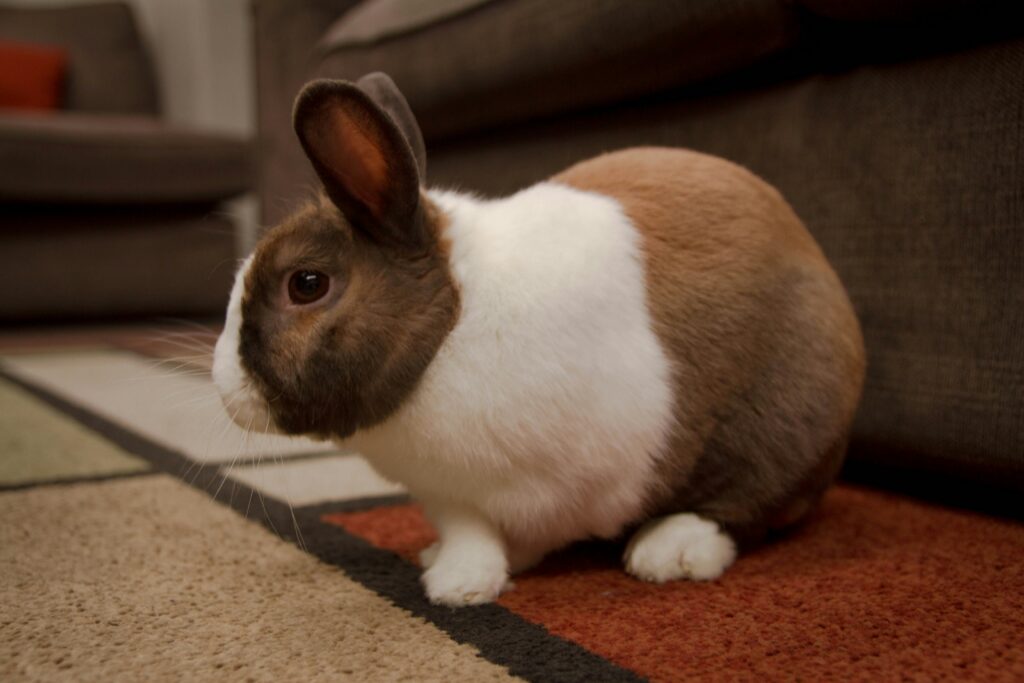
Health Considerations
Dutch rabbits are generally very healthy, avoiding many of the genetic conditions that can cause issues for other breeds. Even so, there are still some general health considerations to keep in mind
- Gastrointestinal Stasis: This condition occurs when a rabbit’s digestive system slows down or stops functioning properly, often due to poor diet, lack of exercise, or stress. Signs include reduced appetite, lethargy, and decreased fecal output. Prompt veterinary attention is crucial to prevent complications.
- Obesity: Dutch rabbits can become overweight if overfed or given too many high-calorie treats. Monitor their diet closely and ensure they receive regular exercise to maintain a healthy weight!
- Respiratory Issues: Like all rabbits, Dutch are susceptible to respiratory infections, especially if kept in damp or poorly ventilated environments. Keep their living area clean and dry and seek veterinary care if you notice signs of respiratory distress such as sneezing or labored breathing.
Conclusion
The Dutch rabbit is a unique breed with a rich history and a range of appealing characteristics. Their distinctive color pattern, friendly personality, and manageable size make them a popular choice for pet owners.
By providing proper care, housing, and veterinary attention, you can ensure that your Dutch rabbit leads a healthy and fulfilling life.
Whether you are a seasoned rabbit enthusiast or a first-time pet owner, the Dutch rabbit is sure to be a great choice!
Looking for similar breeds?
Check these out!
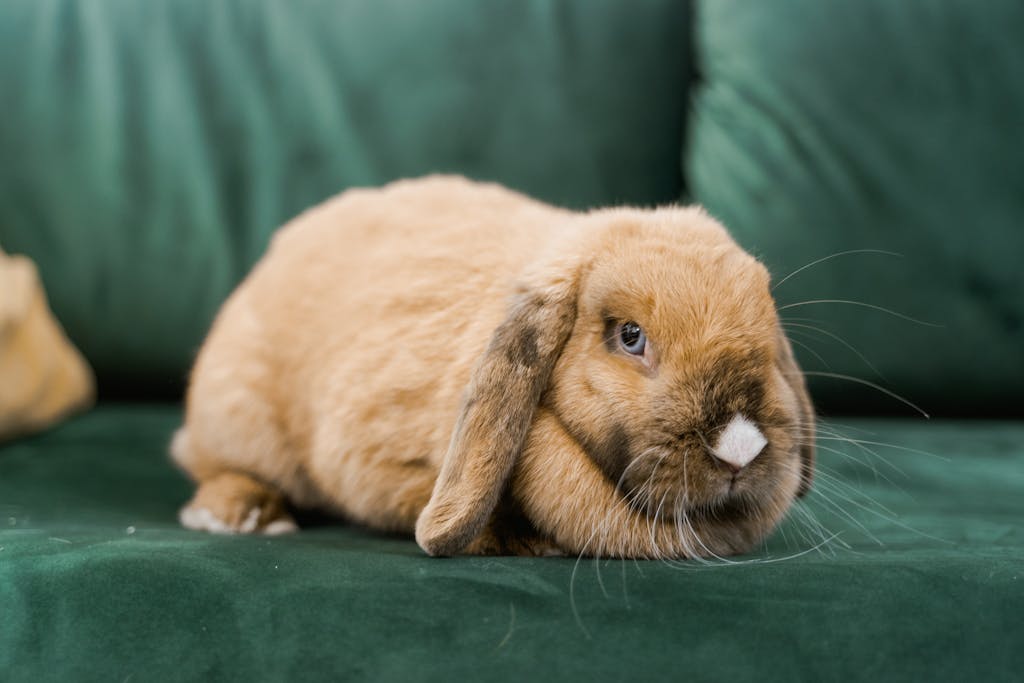
Mini Lop
Mini Lops are small to medium sized rabbits with adorable lopped ears.
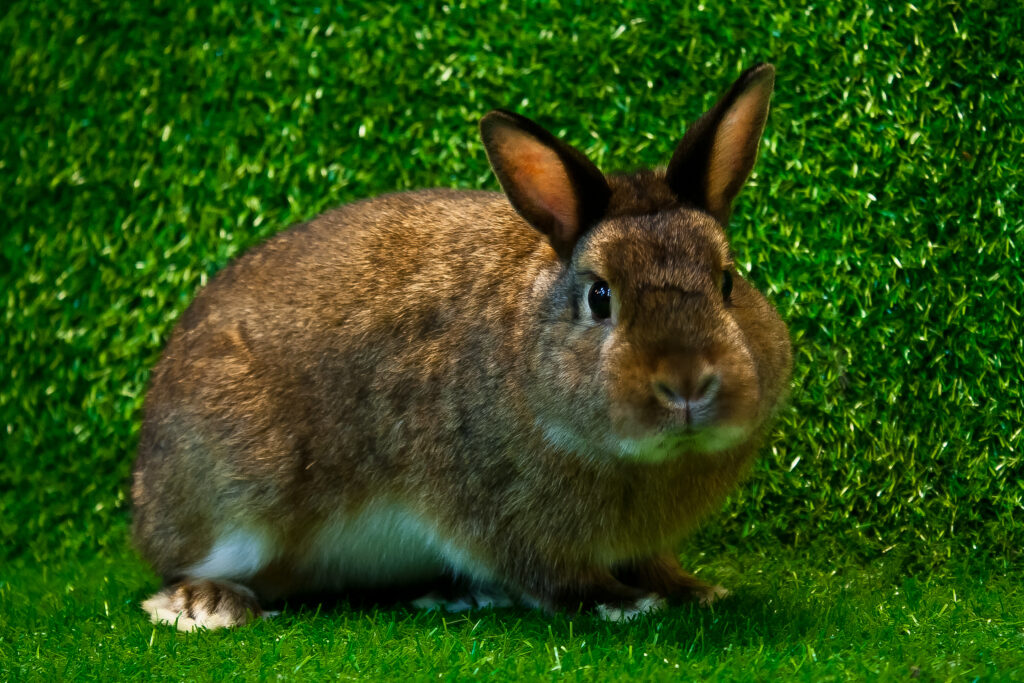
Mini Satin
This breed is only about 4lbs., but they make a big impression with their glossy coats!

Havana
Havanas are a similar size to Dutch, weighing in at between 4.5 to 6.5lbs.
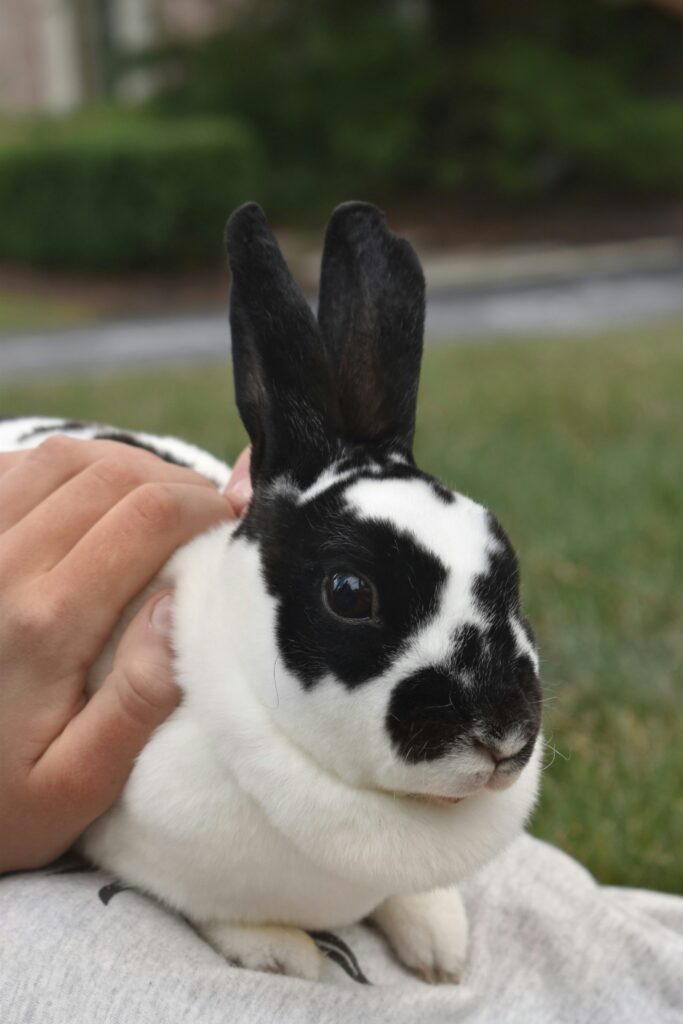
Mini Rex
Mini Rex are a small breed. They have amazingly plush and soft coats that feel similar to velvet.
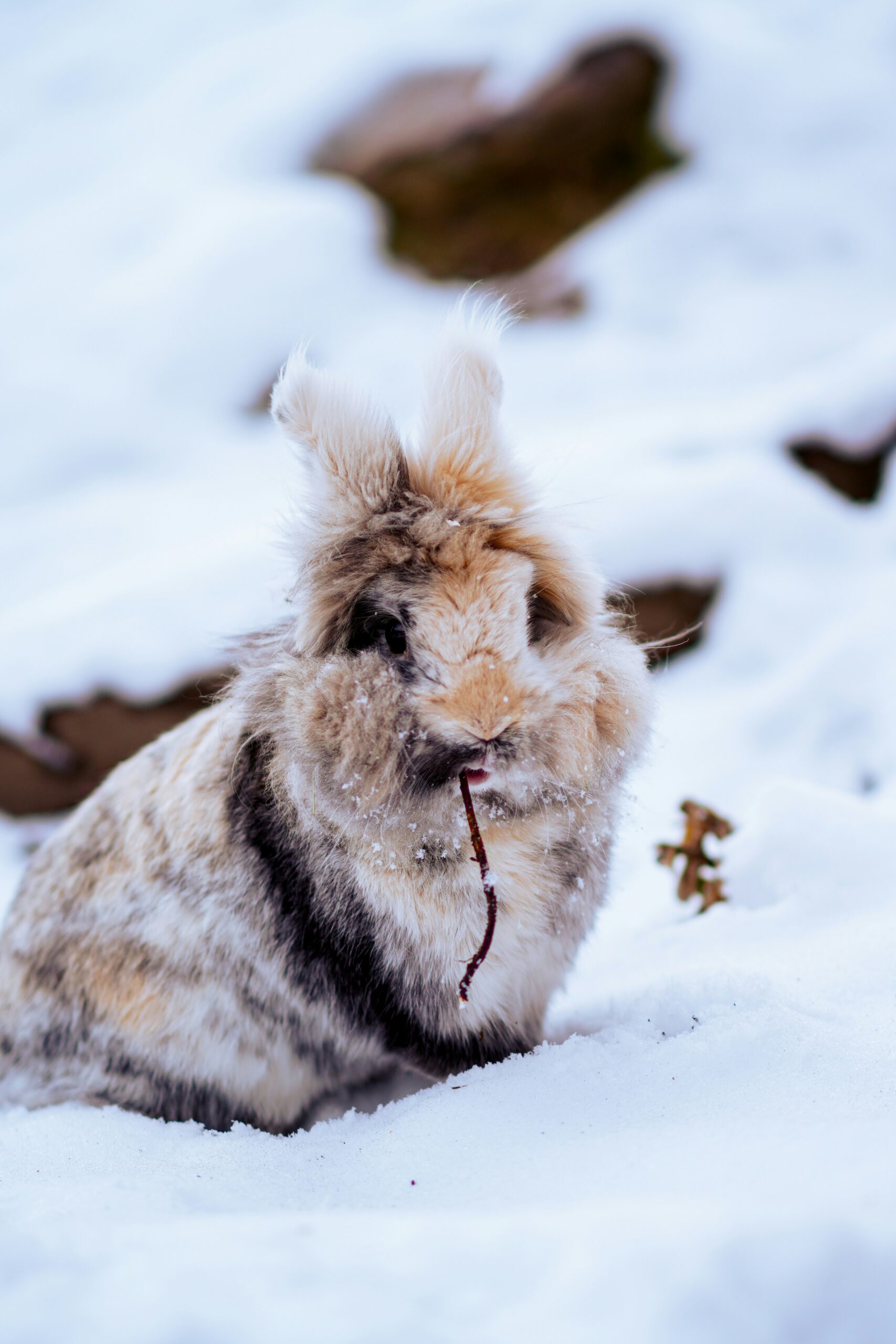
Clover Patch Rabbitry
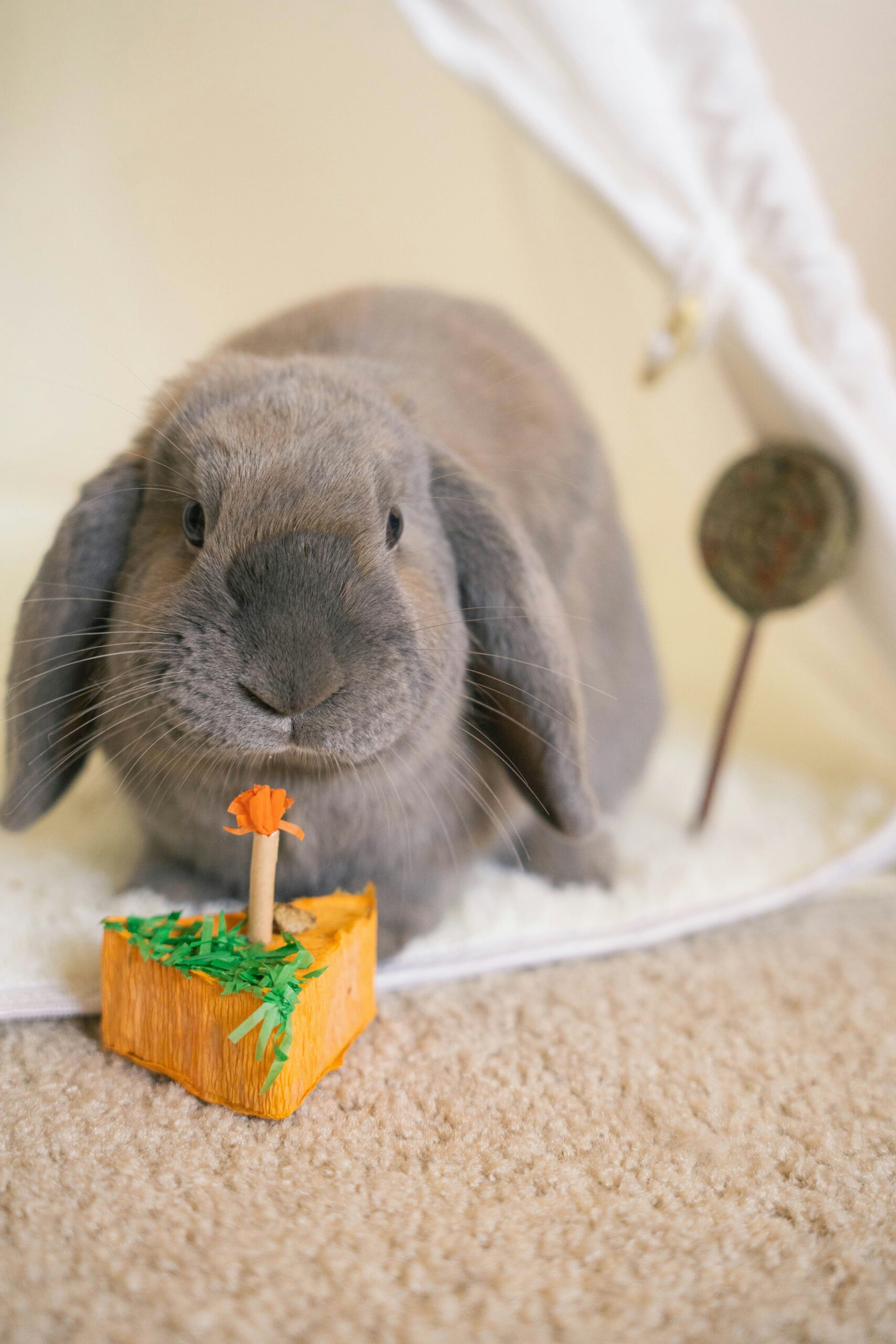
Blue Moon Meadow
See a Picture Missing?
Here at Hutch Happiness we want to showcase YOUR rabbits! If you have a photo of a rabbit you would like to share, reach out to me at Emily@hutchhappiness.com. Along with your rabbit photo we are happy to provide a link to your rabbitry website if available.
